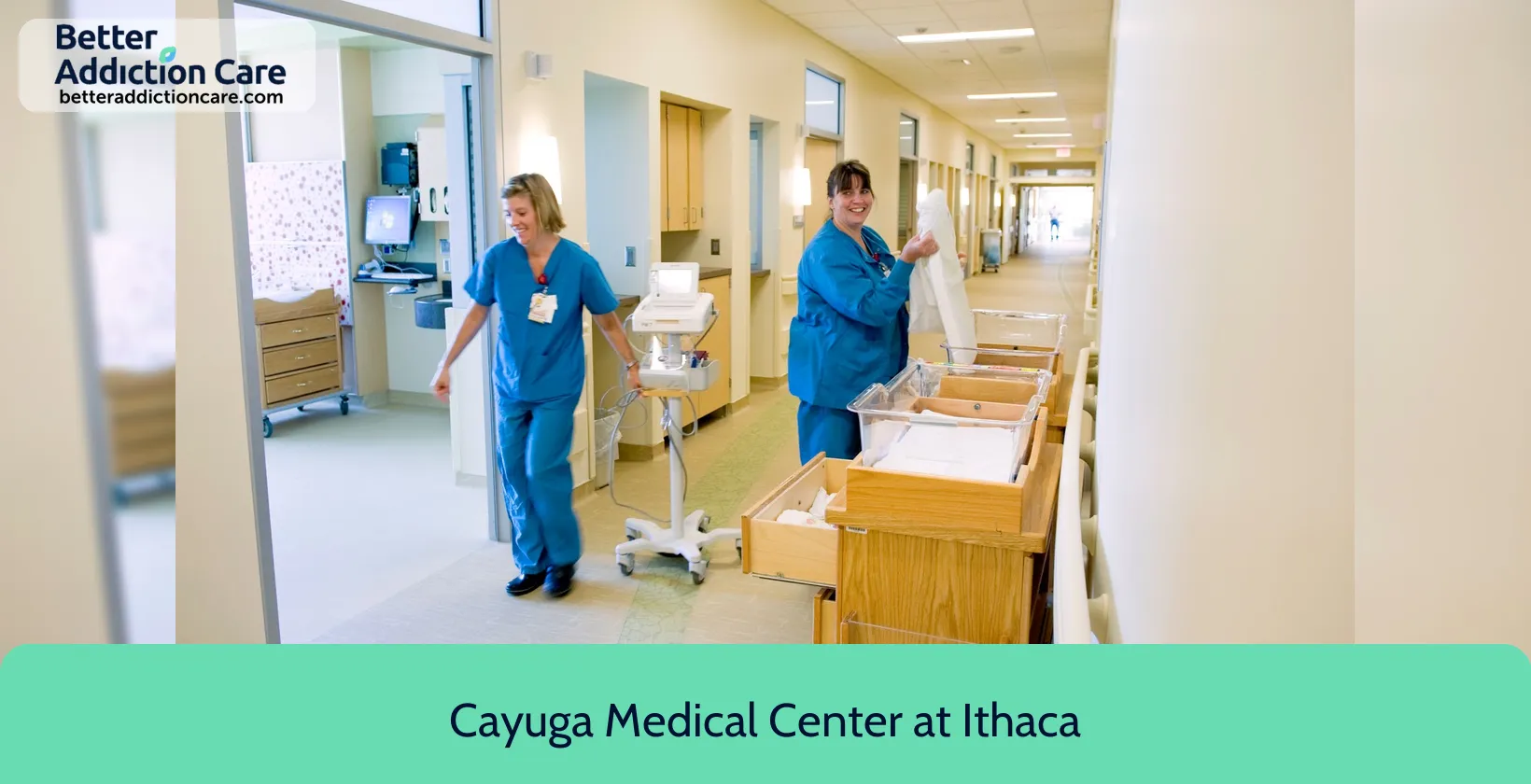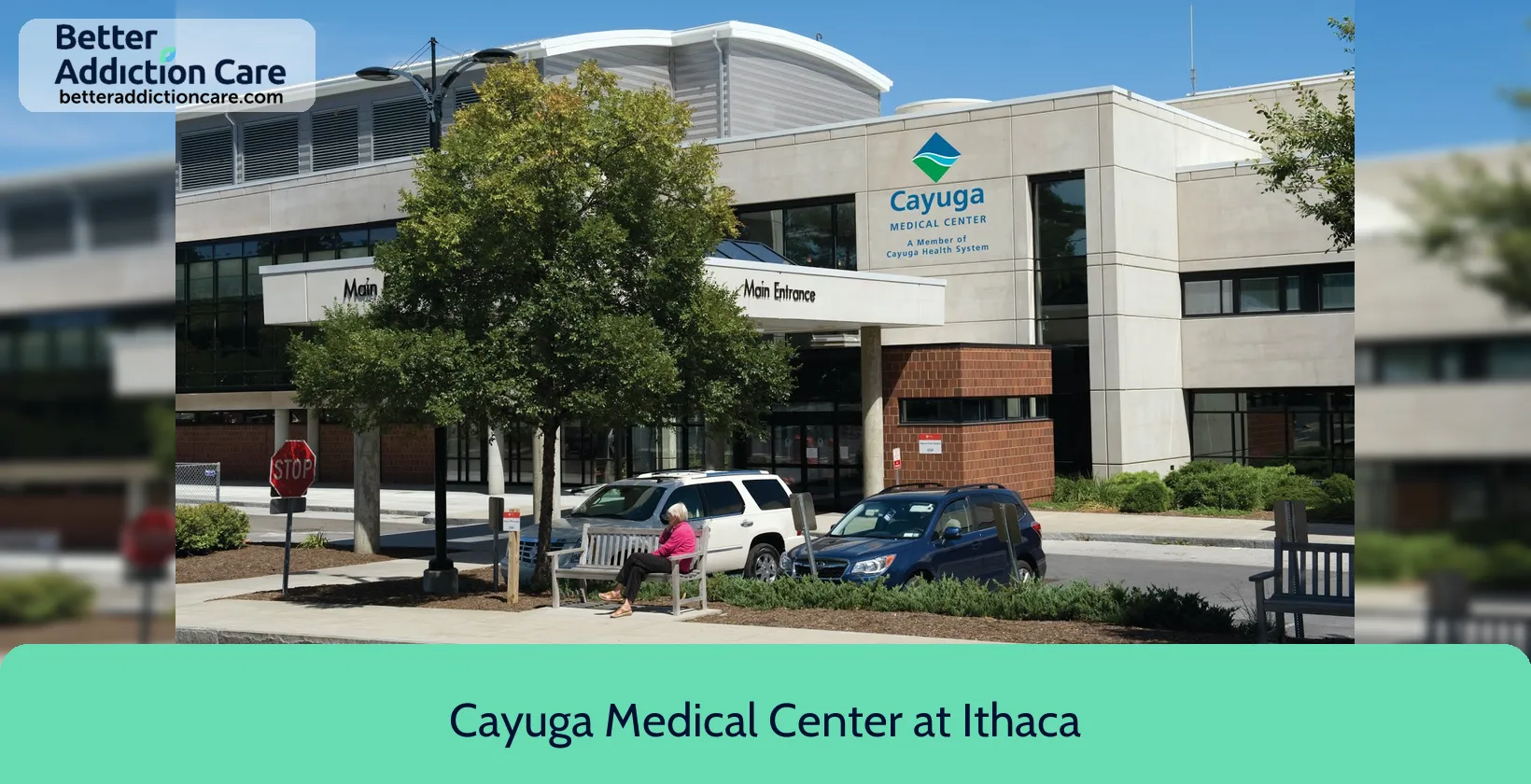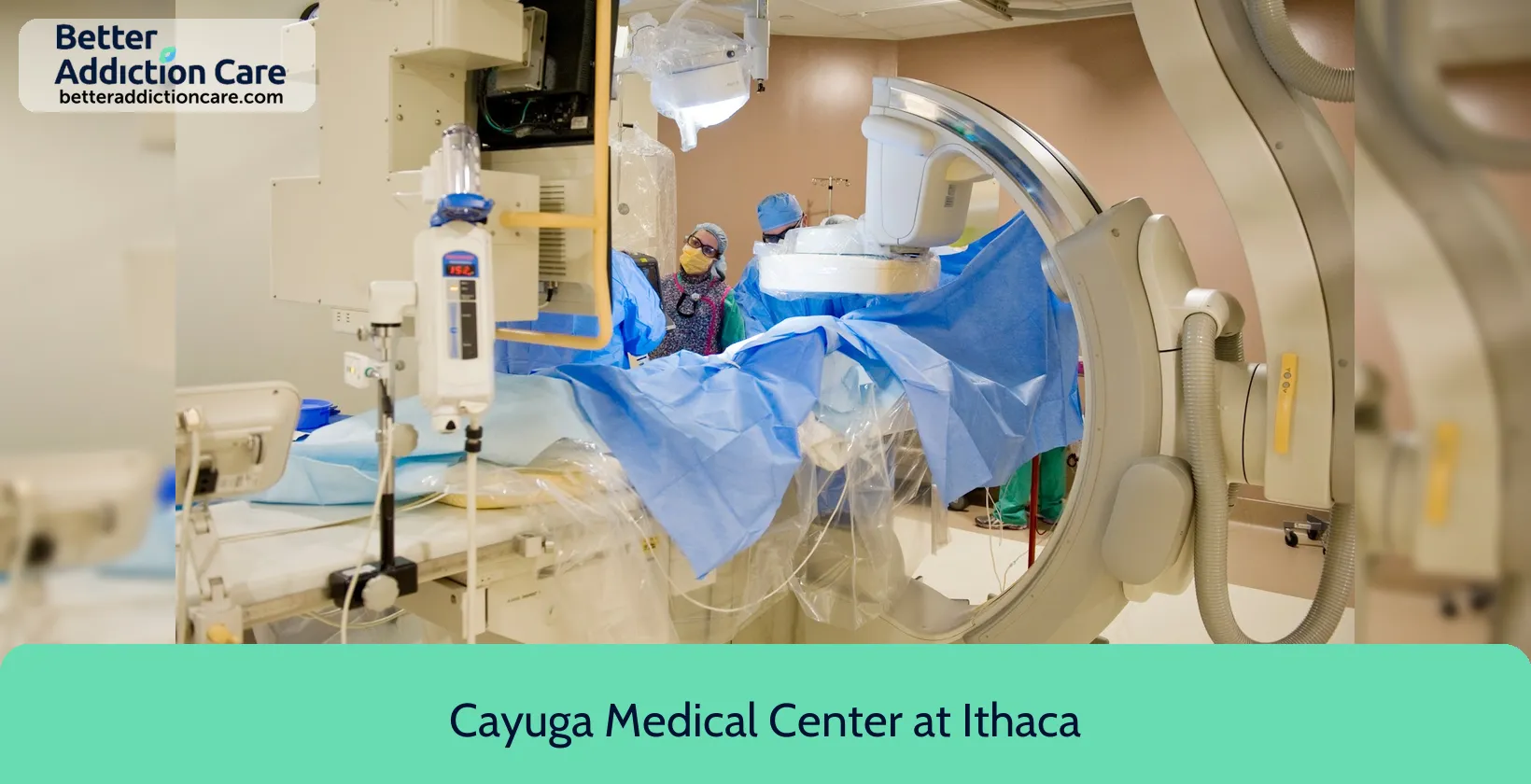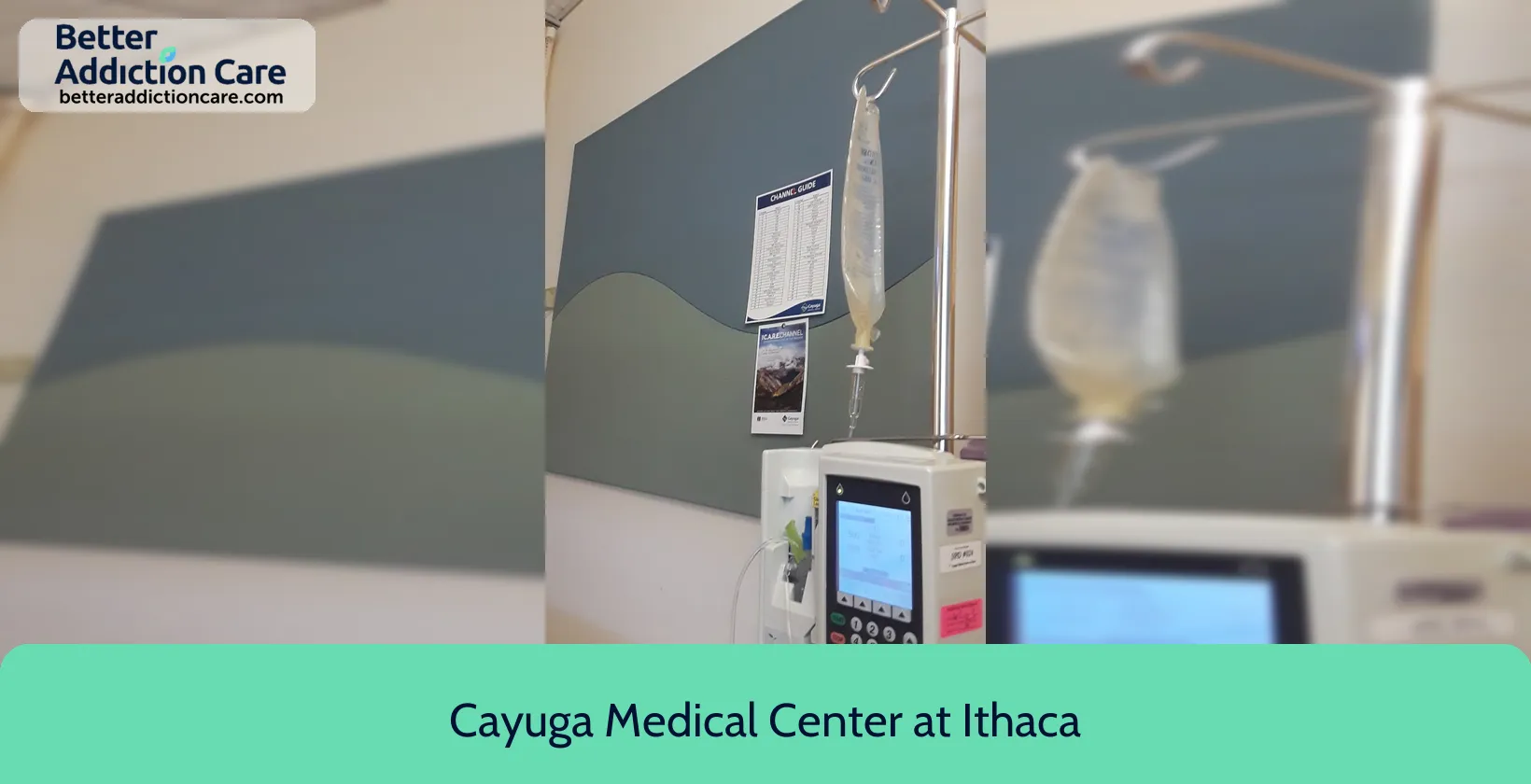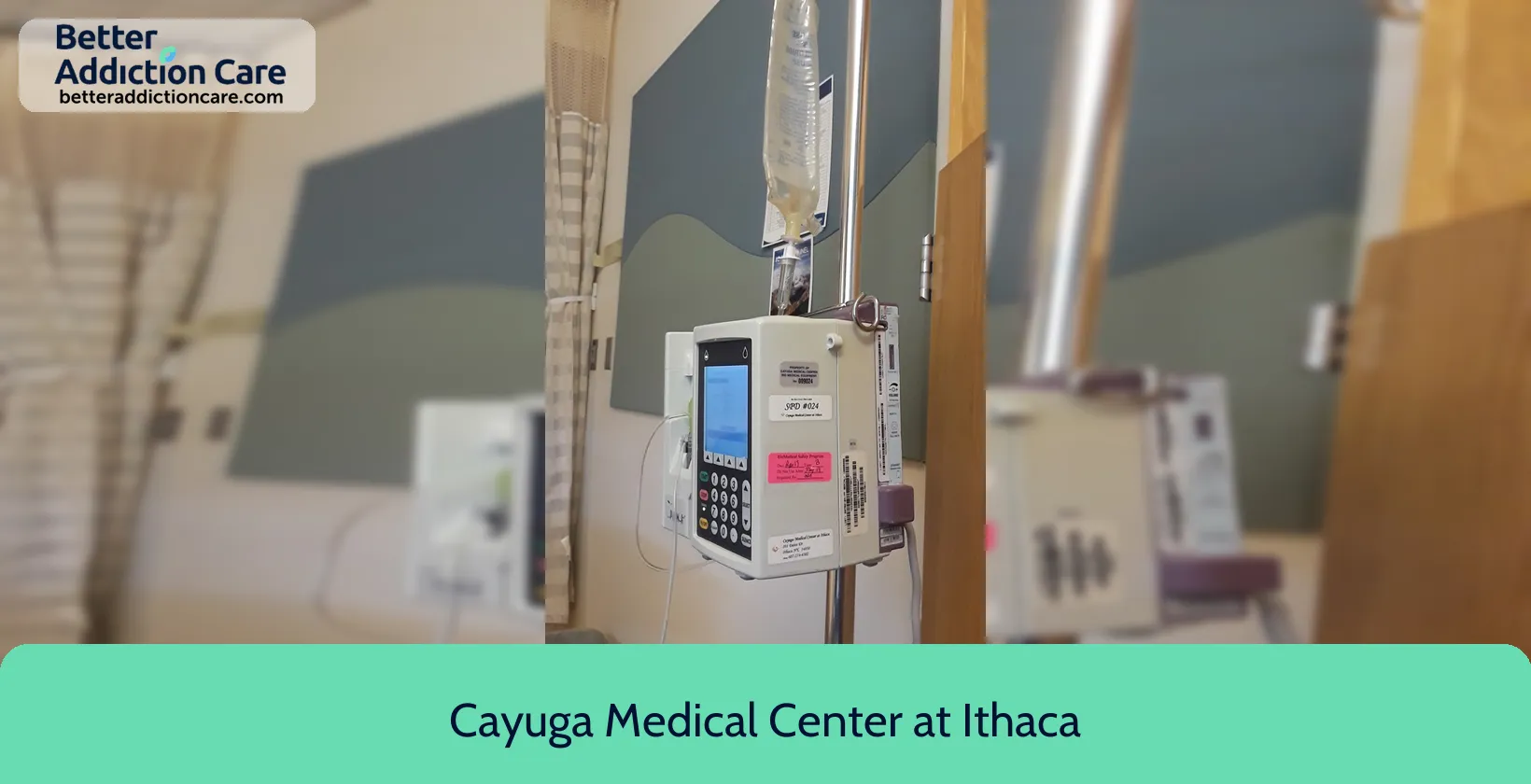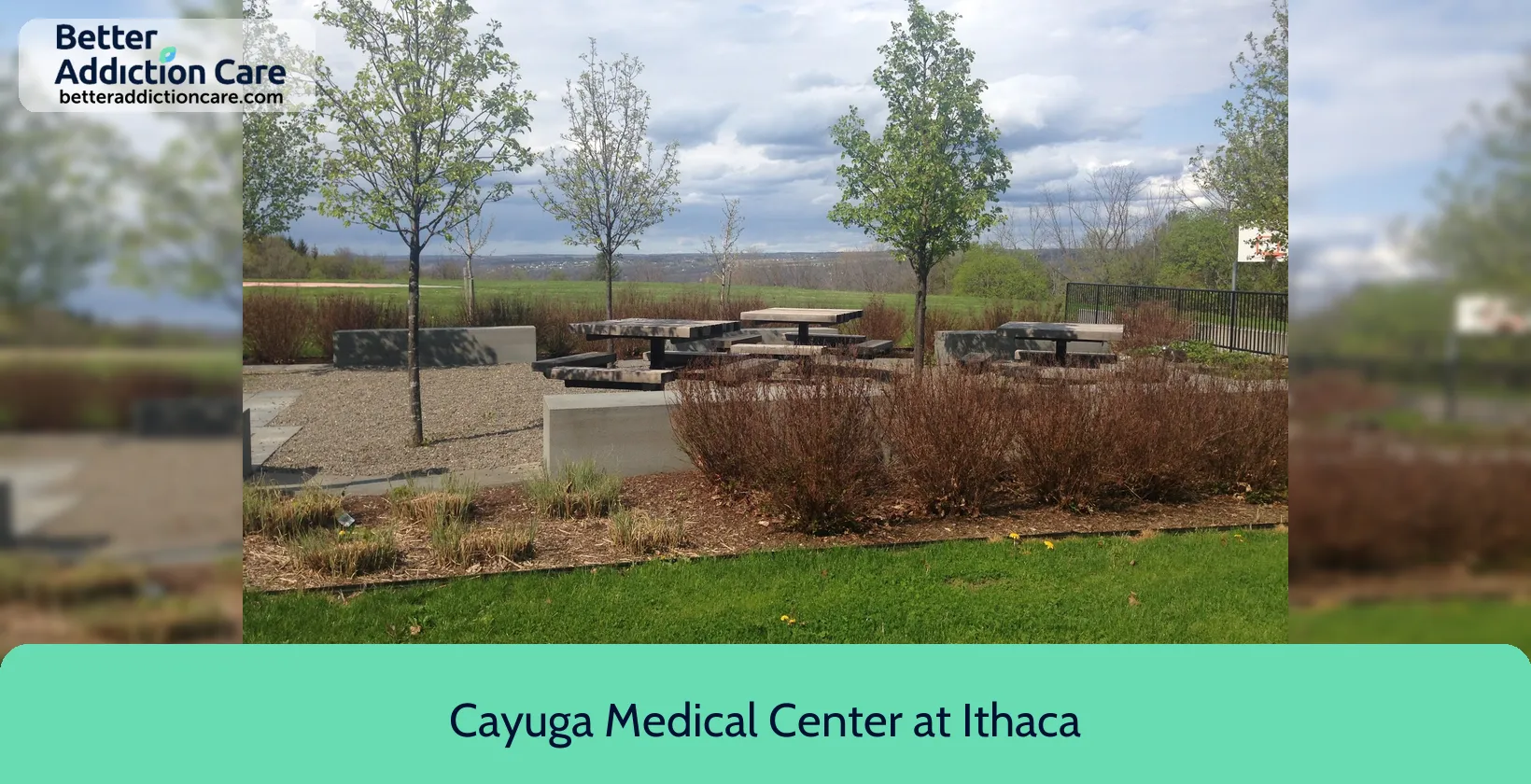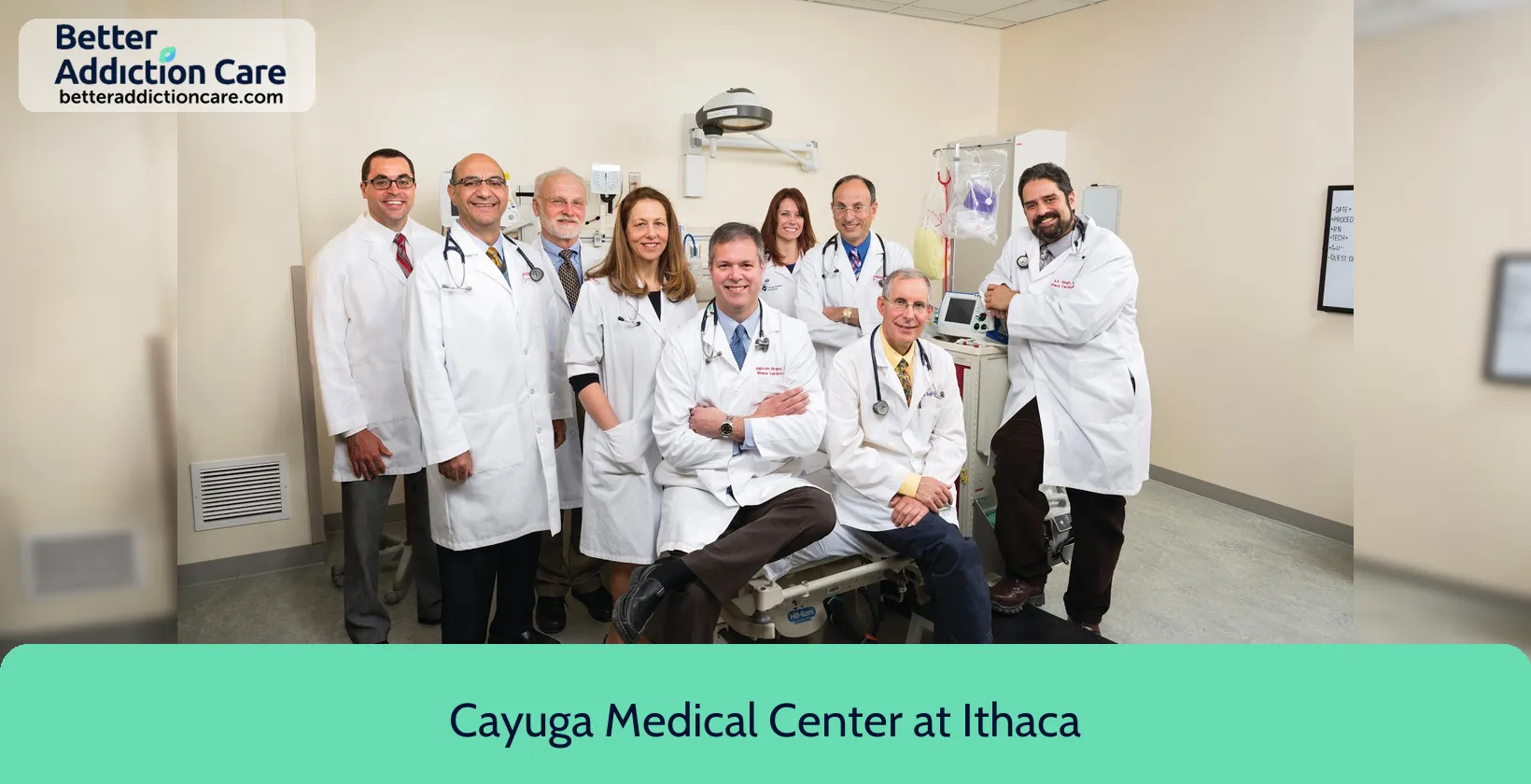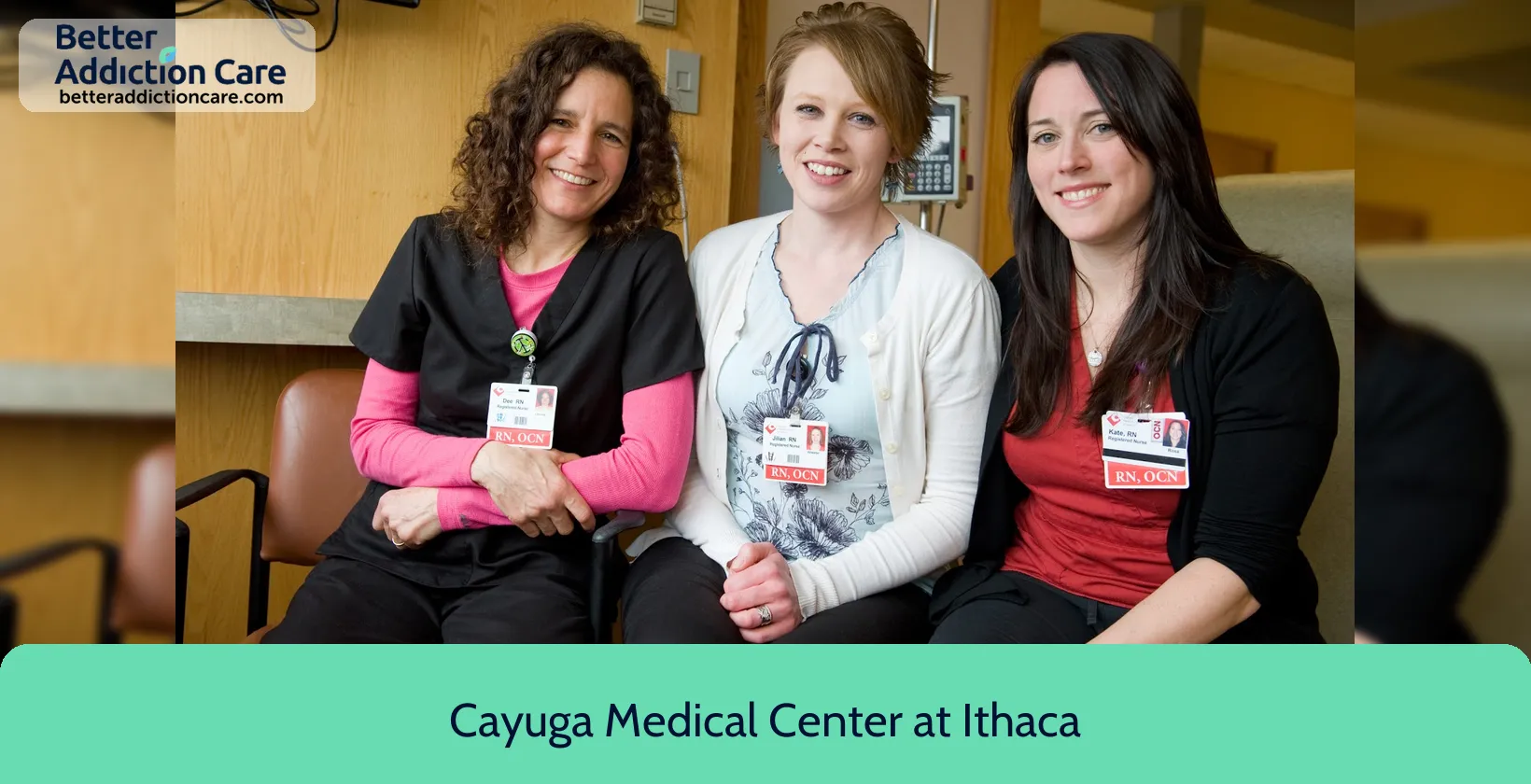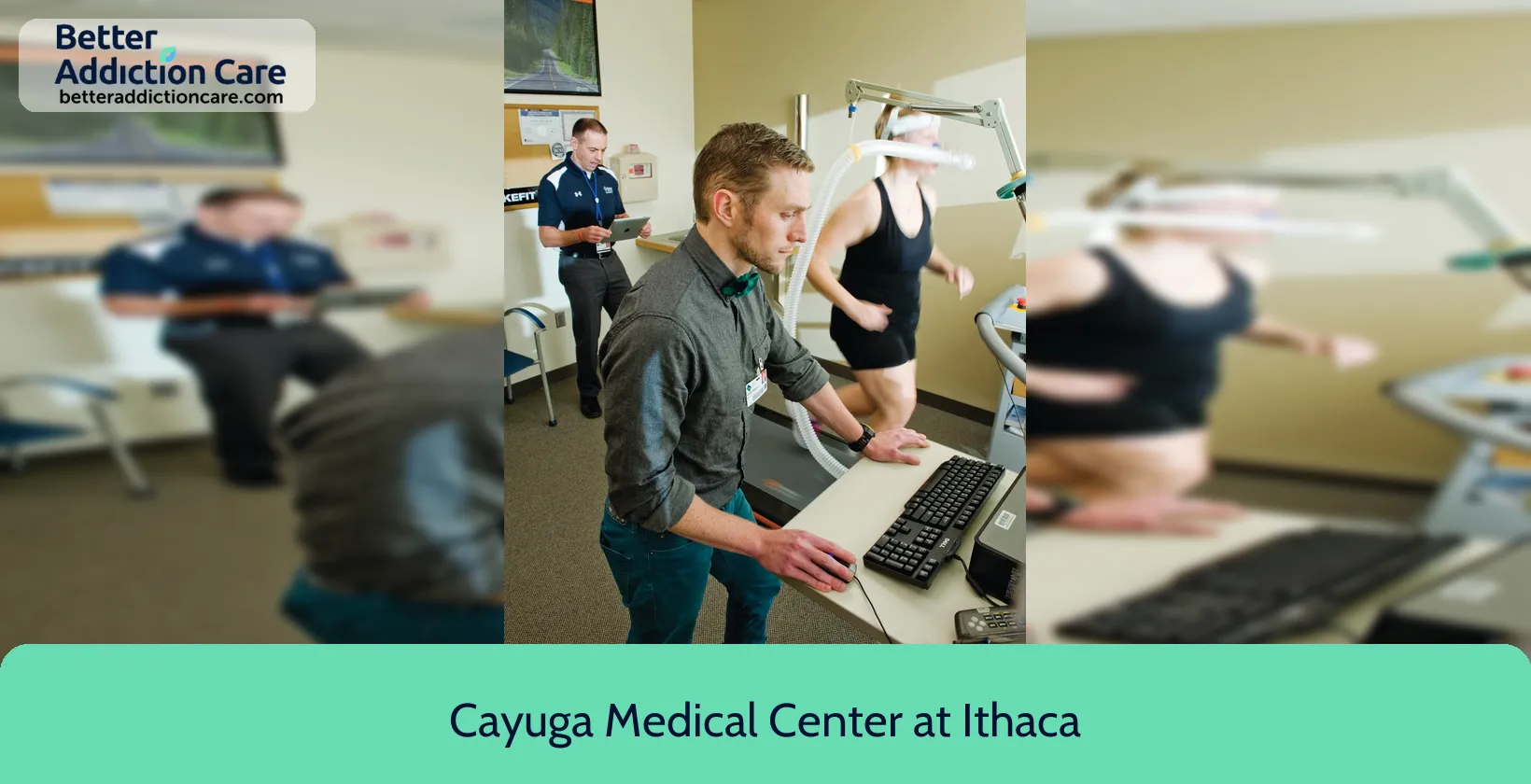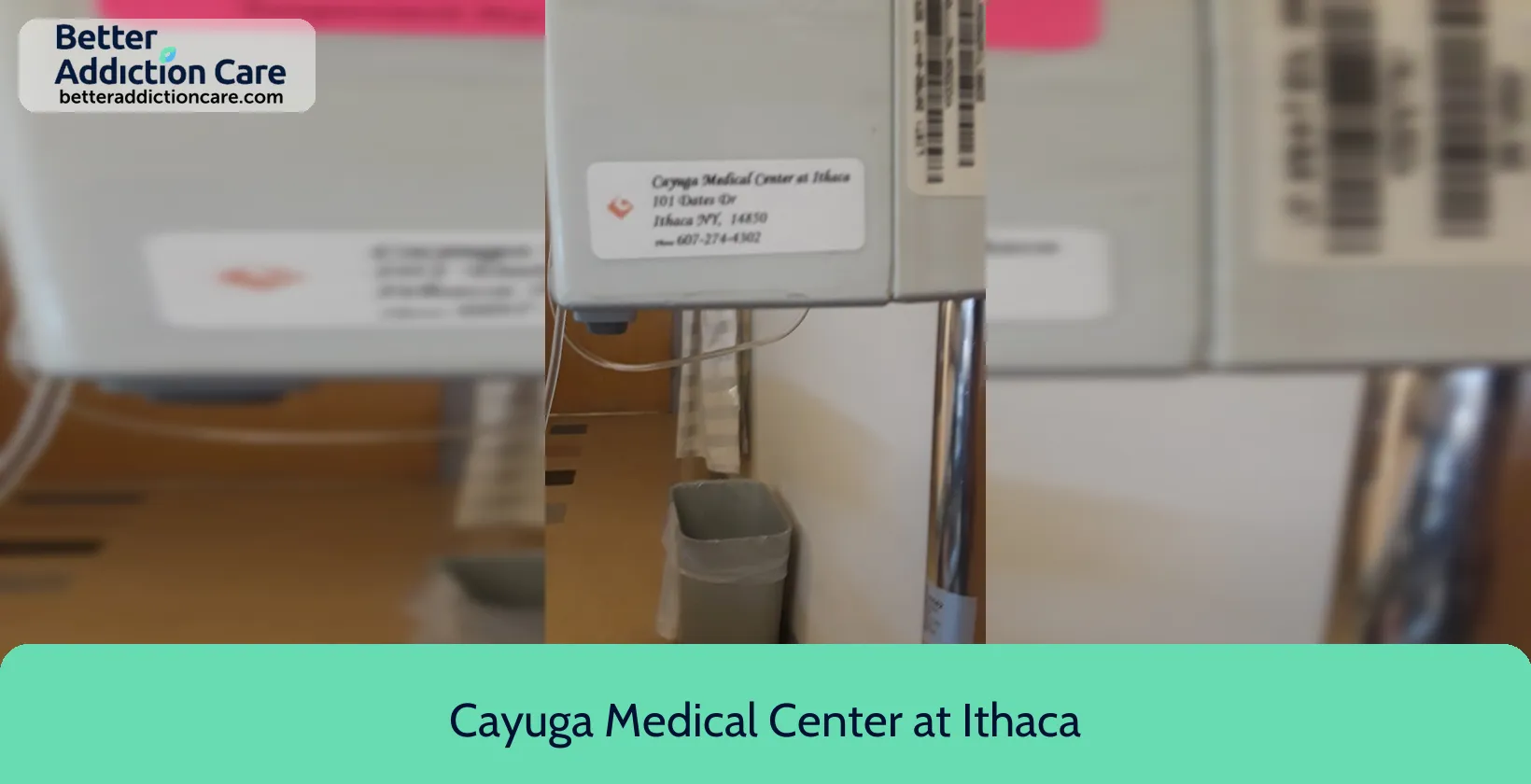Overview
Cayuga Medical Center at Ithaca - Behavioral Services Unit is a mental health treatment center for people seeking treatment near Tompkins County. As part of their treatment modalities for recovery, Cayuga Medical Center at Ithaca - Behavioral Services Unit provides group counseling, cognitive behavioral therapy, and dialectical behavior therapy during treatment. Cayuga Medical Center at Ithaca - Behavioral Services Unit is located in Ithaca, New York, accepting cash or self-payment for treatment.
Cayuga Medical Center at Ithaca - Behavioral Services Unit at a Glance
Payment Options
- Cash or self-payment
- Medicaid
- Medicare
- State-financed health insurance plan other than Medicaid
- Private health insurance
Assessments
- Screening for tobacco use
- Comprehensive mental health assessment
- Comprehensive substance use assessment
Age Groups
- Children/adolescents
- Young adults
- Adults
- Seniors
Ancillary Services
- Court-ordered outpatient treatment
- Diet and exercise counseling
- Education services
- Family psychoeducation
- Integrated primary care services
Highlights About Cayuga Medical Center at Ithaca - Behavioral Services Unit
6.65/10
With an overall rating of 6.65/10, this facility has following balanced range of services. Alcohol Rehabilitation: 8.00/10, Drug Rehab and Detox: 6.00/10, Insurance and Payments: 6.00/10, Treatment Options: 6.61/10.-
Alcohol Rehabilitation 8.00
-
Treatment Options 6.61
-
Drug Rehab and Detox 6.00
-
Insurance and Payments 6.00
Treatment At Cayuga Medical Center at Ithaca - Behavioral Services Unit
Treatment Conditions
- Mental health treatment
- Substance use treatment
- Co-occurring Disorders
Care Levels
- Hospital inpatient/24-hour hospital inpatient
Treatment Modalities
- Group counseling
- Cognitive behavioral therapy
- Dialectical behavior therapy
- Activity therapy
- Smoking/vaping/tobacco cessation counseling
Ancillary Services
Languages
- Sign language services for the deaf and hard of hearing
Additional Services
- Pharmacotherapies administered during treatment
- Metabolic syndrome monitoring
Special Programs
- Children/adolescents with serious emotional disturbance (SED)
- Persons 18 and older with serious mental illness (SMI)
Get Help Now
Common Questions About Cayuga Medical Center at Ithaca - Behavioral Services Unit
Contact Information
Other Facilities in Ithaca

7.11
DISCLAIMER: The facility name, logo and brand are the property and registered trademarks of REACH Project - Outpatient, and are being used for identification and informational purposes only. Use of these names, logos and brands shall not imply endorsement. BetterAddictionCare.com is not affiliated with or sponsored by REACH Project - Outpatient.
